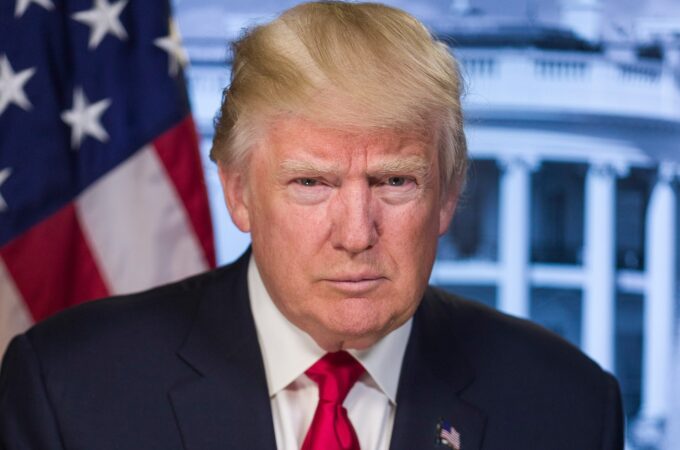11 Super Successful Tech Leaders Who Struggled When They First Arrived In America
Business Insider: More than a third of the top tech companies in the US were founded by people born outside of the country. Their success stories drive many immigrants to come to the US in hopes of realizing the American Dream. But just looking at their success makes it easy to overlook the fact that a lot of the immigrant founders had to overcome other problems – from language barriers to financial constraints – to achieve their extraordinary success.
Sergey Brin had a very ‘difficult first year’ in the US
Google cofounder Sergey Brin was just 6 years old when his family emigrated from the Soviet Union to settle in Maryland. His first memory of the US was of “sitting in the backseat of the car, amazed at all the giant automobiles on the highway,” his mother Eugenia Brin told Moment Magazine.
She says Brin struggled to adjust to the new surroundings early on. He was bashful and spoke English with a heavy accent, which made the first year a “difficult year for him.”
“We were constantly discussing the fact we had been told that children are like sponges, that they immediately grasp the language and have no problem, and that wasn’t the case,” she said.
It may have taken Brin longer to learn English, but he ended up in Stanford’s PhD program in computer science, where he met Google cofounder Larry Page. Now Google is a $366 billion company, and Brin has a net worth of almost $30 billion.
Max Levchin lost his accent by watching American TV shows
Paypal cofounder Max Levchin was born in Ukraine, but moved to the US when he was 16 years old.
Levchin says his family was quite poor when they got here in 1991, and he had a strong accent while speaking English. Although he was fluent in English, Levchin had a hard time understanding all the cultural references people were making at school.
To help his cultural assimilation, Levchin relied on American TV shows. He says he found a TV in a dumpster and fixed it to watch all the TV shows he wanted to.
“That’s how I lost my accent and got a crash course on 1990s American pop culture,” he told Silicon Valley Business Journal.
Just 7 years after settling in Chicago, Levchin cofounded PayPal in 1998 alongside Peter Thiel and Elon Musk. It was acquried by eBay for roughly $1.5 billion in 2002.
Chamath Palihapitiya grew up on welfare before becoming a billionaire investor
Chamath Palihapitiya, born in Sri Lanka, moved to Canada at the age of six. Early on, his father was unemployed and his family lived above a laundromat, relying on welfare.
But, being less privileged only motivated Palihapitiya to work harder. He’d obsess over the Forbes’ Billionaires List, one day dreaming of making it big.
Finally, he got an electrical engineering degree from the University of Waterloo, and quickly became one of the most successful tech leaders at a very young age.
He was the youngest VP in AOL’s history at the age of 26. He was instrumental in Facebook’s growth early on, becoming one of the longest-tenured senior executives there.
In 2011, he quit Facebook to launch his own venture capital firm called Social+Capital Partnership, which is now one of the fastest-growing VC firms in the Silicon Valley.
Jan Koum lived on food stamps before he sold WhatsApp for $19 billion
WhatsApp cofounder Jan Koum was born in Ukraine, where grew up in a house with no hot water.
Koum was only 16 years old when his family moved to the US. They settled in Mountain View, CA, where they lived on food stamps. His mother worked as a baby sittter, while he was a cleaner at a local grocery store. His father died in 1997, never setting foot in Mountain View, while his mother died of cancer in 2000.
Despite all this, Koum was smart enough to teach himself computer networking through a book he bought at a used bookstore. He ended up attending San Jose State University, and later found a job at Yahoo as employee #44.
Fast-forward to 2009, Koum founded WhatsApp, a messaging app that was later acquired by Facebook for $19 billion. His estimated net worth is $7.2 billion.
Jerry Yang only knew one English word when he first arrived to the US
Yahoo cofounder Jerry Yang, born in Taiwan, was only 8 years old when he moved to San Jose, CA in 1976. As the story goes, Yang only knew the English word “shoe” when he first set foot in the country. He says it took him 3 years to become fluent in English.
But that didn’t stop him from achieving academic excellence. Yang got both his bachelor’s and master’s in electrical engineering at Stanford University. There, he met David Filo, and together they cofounded Yahoo, arguably the biggest internet portal in the 90s.
Yang stepped down as Yahoo CEO in 2009 and left the company in 2012. But he was able to build an estimated net worth of $1.15 billion along the way, and remains a very active investor in the Valley.
Sanjay Mehrotra’s US visa application was rejected 3 times before he cofounded SanDisk
For Sanjay Mehrotra, the cofounder of the $18 billion company SanDisk, it was what he had to deal with before he even arrived in the US that set him back.
Born and raised in India, Mehrotra was accepted to UC Berkeley when he was barely 18 years old. But the US consulate in New Delhi rejected his visa application three times, before finally approving it after his father spoke to the counselor for 20 minutes.
Mehrotra eventually finished his master’s in computer science and electrical engineering at Berkeley. Right out of school, he worked for Intel, where he met SanDisk cofounder Eli Harari.
In 1988, they founded SanDisk, and 26 years later, it has a marketcap around $18 billion with more than 8,700 employees worldwide.
Tien Tzuo lived through the mean streets of Brooklyn in the 70s
Anyone who lived through the 70s and 80s in New York City knows how rough things were back then.
Tien Tzuo, Zuora founder and former Salesforce CMO, lived through those times right when his family moved from Taiwan to settle in the heart of Brooklyn in the 1970s.
Tzuo says he was mugged a few times growing up there, as the borough was mostly comprised of immigrants and some gangs.
But it didn’t deter him from excelling at school, and Tzuo ended up earning an electrical engineering degree at Cornell University.
After school, Tzuo found a job at Oracle, and later became Salesforce’s #11 employee. He served in several executives roles at Salesforce, before moving on to launch his own company called Zuora in 2007.
Just last month, Zuora raised $115 million, valuing the company close to $1 billion.
Andy Grove escaped from Nazi rule and worked as a busboy before turning Intel into the most powerful semiconductor company in the world
Andy Grove was born in Hungary and spent years hiding from the Nazis, before arriving in the US in 1957.
With very little money and limited English language skills, Grove had difficulty settling into his new life in the US. He worked as a busboy during his college years in New York, while his girlfriend and future wife, Eva Kastan worked as a waitress.
Eventually, Grove earned a PhD in chemical engineering at UC Berkeley and found a job at Fairchild Semiconductor. That job led him to an executive role at Intel in its early years, where he ended up becoming the CEO for over a decade.
Led by his leadership, Intel became the world’s largest semiconductor manufacturer, and one of the most powerful tech companies ever. Steve Jobs, who often called Grove for personal advice, considered Grove his “idol.”
Mike Krieger almost gave up on Instagram because of a flaw in US immigration law
Mike Krieger seriously considered asking his Instagram cofounder Kevin Systrom to replace him before launching the company, because he couldn’t get a US work visa.
In 2010, Krieger, originally from Brazil, applied for an H1-B visa, the document needed for foreigners to legally work in the US. But even after three months of applying, he hadn’t heard back and had to consider moving back to Brazil.
“It was approaching the point of hard conversations. I had moments where I was like, ‘Maybe I should just tell Kevin to forget about it and find somebody who is easier to hire,'” Krieger told Bloomberg.
Eventually, Krieger obtained his H1-B visa and started working on Instagram, which he built in a matter of weeks.
Instagram ended up getting acquired by Facebook for $1 billion in 2012. It now has more than 150 million active users worldwide.
Vinod Dham, the ‘Father of Pentium,’ only had $8 in his pocket when he first got to the US
Vinod Dham is widely regarded as the “Father of Pentium,” for his work at Intel, building the first flash memory chip.
But before all the fame, Dham was a poor college student just trying to make ends meet. According to Venturebeat, when Dham first came to the US in the 1970s, the Indian government gave $8 to foreign tourists. Students could get an additional $20, if they bribed the right people, but he refused to do it and had only $8 in his pocket when he arrived.
But he was able to get off the ground, thanks to a loan from the University of Cincinnati’s study abroad office. He also found a research assistant job that paid him $325. Upon graduation, Dham found a job at Intel and the rest is history.
He later served as the CEO of Silicon Spice, a company that sold for $1.2 billion in 2002. Currently, he’s a venture capitalist.
Christian Gheorghe was a limo driver in New York before founding a company that sold for $500 million
Christian Gheorghe, CEO of business analytics software Tidemark, is a serial entrepreneur who sold his previous startup to SAP for $500 million.
Before his success, Gheorghe was a limo driver in New York City, working his way through immigrant life. It was during one of those rides where he met Andrew Saxe, his future business partner who helped him build a company that sold to Experian a few years later.
In Romania, where he grew up, Gheorghe sold music records and taught himself English by listening to American music. He also taught himself to code by hacking into video games on knock-off PCs.
Now he runs Tidemark, a startup that’s raised more than $93 million from some big-time VCs, including Andreessen Horowitz, Greylock Partners, and Redpoint Ventures.





